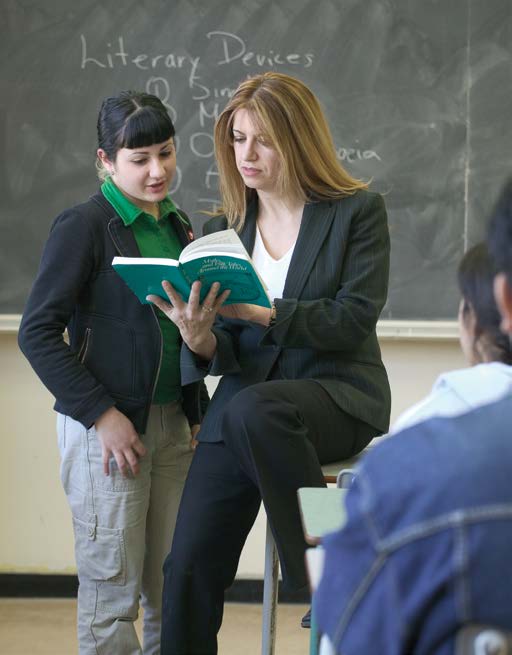Share this page
By Melissa Campeau
Photos: Ontario College of Teachers, iSTOCKPHOTO.COM, Paul Orenstein

Ontario teachers are committed to ongoing professional learning. Developing new skills and gaining new insights benefit the profession as it supports a diversity of learners in the province’s classrooms.
Often, a very personal motive fuels the drive to reflect, learn and grow. For Pierre Beaudin, OCT, formerly the teacher education practicum co-ordinator at the University of Ottawa, it’s his two children — both of whom have special needs. His son has high-functioning autism, and his daughter was born deafblind and challenged with several disabilities including cerebral palsy and spina bifida. In studying how best to support their education, Beaudin became a passionate advocate for teaching students with learning differences.
When his daughter was five, Beaudin enrolled in an Additional Qualification course for teaching deafblind students. While serving as an education consultant at Centre Jules-Léger in Ottawa, he made it his mission to have the centre become an AQ provider. “We partnered with the faculty of education at the University of Ottawa and we became the first to offer a French-language AQ for teaching deafblind students,” says Beaudin. “The centre had been dreaming of doing this for about a decade but it had never gone anywhere. I was motivated by my daughter — that was the engine that accelerated the process.”
Beaudin then helped to create what would become the first French-language AQ for teaching children on the autism spectrum, offered at the University of Ottawa.
In 2015, he proposed developing a new three-part Specialist AQ for teaching children with autism spectrum disorders (the idea is currently being reviewed by the College). “The fact that I have a son with autism motivates me because I know how important it is for teachers to [have the necessary professional knowledge and skills] to support learners with autism spectrum disorders,” he explains.
At W. Ross Macdonald School in Brantford, Ont., the educators’ commitment to students have resulted in new professional learning opportunities for teachers across the province. As a school for blind, hearing impaired and deafblind students, teachers at W. Ross Macdonald have highly specialized skills, knowledge and education. Because there are so few students who are deafblind —fewer than 200 across the province — the only university offering the AQ (in partnership with the school) faced low enrolment, and eventually stopped offering the course. That led to a six-year period with only one French-language provider of the AQ for Teaching Students Who Are Deafblind in Ontario, and no English-language provider at all. With many teachers at W. Ross Macdonald close to retirement (but unwilling to leave their students until a new and well-qualified generation stepped in), leaders at the school could see a crisis on the horizon.
“We began to realize that students around the province weren’t going to have access to that specialized teacher with that specific knowledge,” says Dan Maggiacomo, OCT, principal at W. Ross Macdonald School. “Since we are uniquely positioned to understand the needs of deafblind students, and because we service most of the deafblind students in Ontario, it just made sense to provide the AQ ourselves.”
The rigorous path to becoming a first-time provider (see Spotlight on New AQ Providers p. 4) was worth the time and effort involved, says Maggiacomo. The school offered Part 1 of the AQ for the first time last fall, attracting 20 candidates. This enabled teachers to pursue their professional education, and gave deafblind students the reassurance that they could continue to count on well-prepared teachers and school board staff to support them.